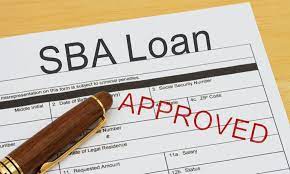Republican Opposition to SBA’s Direct Lending Expansion

Direct Loan: Lawmakers Propose Bill Preventing SBA From Expanding (PHOTO: Inc. Magazine)
Republican Criticism of SBA’s Handling of Pandemic Relief Programs
President Joe Biden is considering increasing the Small Business Administration‘s direct lending capacity, but two Republican lawmakers want to stop the proposal before it even gets off the ground. A two-page bill introduced on Wednesday by Senators John Kennedy (R-LA) and Tim Scott (R-SC) would prohibit the SBA from issuing direct loans through its well-known 7(a) loan program. In the present version of the program, lenders provide loans directly to small enterprises; however, in order to reduce the perceived risk associated with lending to entrepreneurs, the agency guarantees a portion of the loans.
The MPs brought up the SBA’s inconsistent history of fraud in its programs during the pandemic. The organization was most well-known for overseeing the Paycheck Protection Program and the Covid Economic Injury Disaster Loan Program, which combined provided small companies in the United States with emergency help totaling around $1 trillion in the early stages of the pandemic.
In a press release, Senator Scott said, “When acting as a direct lender, the SBA has a consistent history of failure and inefficiency when compared to the private sector.” “The administration’s proposal is just a vehicle for a big government overreach into nearly all aspects of American life and private institutions.”
The main criticism is directed at the SBA’s Economic Injury Disaster Loan program, which included direct loans and had a significant fraud rate. According to the SBA’s Inspector General, loans during the pandemic era—including PPP and EIDL—worth more than $200 billion may have been fraudulent. Put otherwise, it’s possible that 17 percent of the agency’s PPP and EIDL loans were obtained by fraudsters.
Debate Over SBA’s Direct Lending Expansion and Congressional Dynamics
Formally known as the Protecting Access to Credit for Small Business Act, the bill was co-sponsored by eleven other senators from Republicans. It comes just a few weeks after President Joe Biden suggested in the budget for the following year that the agency establish a direct 7(a) lending program. The SBA has attempted to enter the direct 7(a) lending market previously. The White House attempted to increase the SBA’s lending capacity in 2021 by requesting a $4.5 billion injection, but Congress eventually rejected the plan.
The prospects of Sens. Kennedy and Scott’s measure moving forward in the current Congress are slim because some politicians from the other party are in favor of the SBA’s expansion into direct lending—as long as Congress is consulted, that is.
Sen. Ben Cardin (D-MD) stated during a hearing on the Small Business Committee on Wednesday, “I think there are many small businesses that don’t have commercially desirable loans because they’re so small in dollar amount that they’re not really the type of loans that commercial lenders want to get involved in.” “So I think a well-tailored direct loan program is something that could really help, particularly the smaller small businesses. So I hope you get the authority. Administrator Isabel Guzman of the SBA has insisted that unless Congress gives its approval, the organization would not directly make 7(a) loans.
READ ALSO: A Major Decision By The Supreme Court Leads Biden To Cancel Millions Of Student Loans

















































